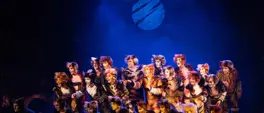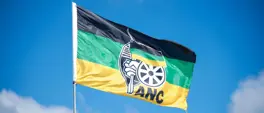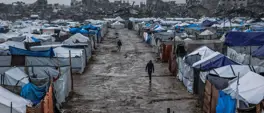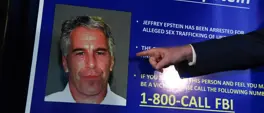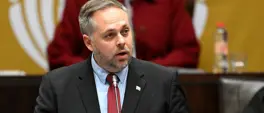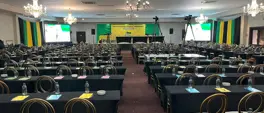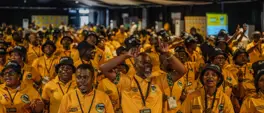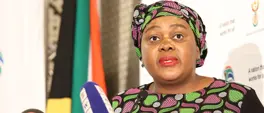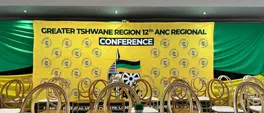INSIDE EWN: Unemployed Joburg youth don't identify with Tintswalo's tale
Thabiso Goba
13 February 2024 | 10:02President Cyril Ramaphosa used an analogy of a fictional character called Tintswalo to demonstrate the 30-year gains of a democratic government. EWN visited tram Fischerville to speak to real-life Tintswalos.
JOHANNESBURG - The unemployed youth of Johannesburg say they do not identify with the story of Tintswalo.
In his State of the Nation Address (SONA) last Thursday, President Cyril Ramaphosa used an analogy of a fictional character called Tinstwalo to demonstrate the 30-year gains of a democratic government.
In Ramaphosa’s analogy, Tinstwalo is a born free, who grew up in an RDP home and benefitted from free education, healthcare and social welfare grants provided for by government, provisions that were not available for Tintswalo’s parent in apartheid South Africa.
Eyewitness News visited the area of Bram Fischerville, west of Johannesburg, to speak to real-life Tintswalos.
If Tintswalo existed, there is a good chance she would have grown up in a place like Bram Fischerville.
During the early 2000s government built a number of RDP houses, transforming the area from an informal settlement to a functional township.
While there were documented concerns over the quality of the houses, many still remain today.
Thirty-one-year-old Nqobile Mhlongo still stays in one with his older brother.
Like Tinstwalo, Mhlongo went to no-fee government schools, however, unlike Tintswalo he was not able to study further after matric.
Mhlongo says life is difficult for young people not born into privilege, especially in a place like Bram Fischerville.
"The youth of Mzansi is under a lot of pressure, but we will never be the same because we don't come from the same households. Those who grew up with money and everything provided to them, they don't need to find jobs but where I grew up, life is very hard."
Twenty-eight-year-old Sindiswa Moorosi is a mother to a child on a government grant.
Like Tinstwalo, Sindiswa has benefited from free education, housing and healthcare.
However, she says all she really wants is a job so she’s able to support herself and her baby.
"Sometimes, I think things were better during the era of our parents because a lot of things were different. OK, there was apartheid but at least people were employed and there was discipline "
Following President Cyril Ramaphosa’s State of the Nation Address, the #IamTinstwalo trended on social media platform X, formerly known as Twitter.
Many people from across the country shared testimonies of how government support elevated them.
A video of Wits University students affiliated with the ANC Youth wing organisation, SASCO, did a TikTok of how their education and housing was a result of government policy.
However, opposition parties say that with youth unemployment at over 60%, there are many Tintswalos left behind.
Makashule Gana, who is the chief organiser for the newly formed political party, Rise Mzansi, is what many would describe as a Tintswalo.
A rural boy from Limpopo, who through free government primary and tertiary education, managed to carve out a middle-class life for himself in Johannesburg.
However, Gana, says there are just too few people like him.
"I have benefited from this democracy but there are millions of people of my generation that are yet to taste the fruits of democracy. The reason Rise Mzansi exists is to ensure the millions of people, the Thandis and the Thabos of this world can also get to taste the fruit of democracy."
The name Tinstwalo has been thrown into South Africa’s political lexicon and for the next couple of months, many political parties will be putting their strategies forward on how they can make her a reality for all young South Africans.
Get the whole picture 💡
Take a look at the topic timeline for all related articles.


